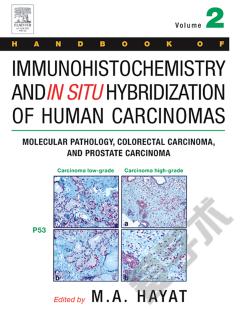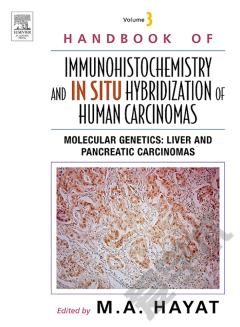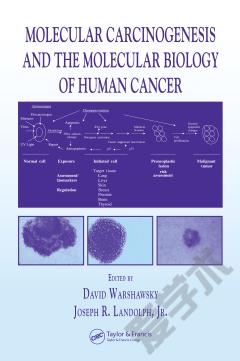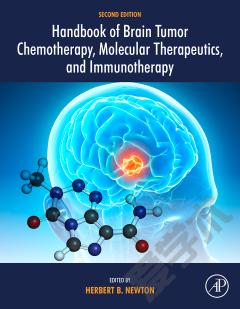Handbook of Immunohistochemistry and in Situ Hybridization of Human Carcinomas —— Molecular Pathology, Colorectal Carcinoma, and Prostate Carcinoma
----- 人类癌的免疫组织化学和原位杂交手册:分子病理学,结直肠癌和前列腺癌
Immunohistochemistry is the use of specific antibodies to stain particular molecular species in situ. This technique has allowed the identification of many more cell types than could be visualized by classical histology, particularly in the immune system and among the scattered hormone-secreting cells of the endocrine system, and has the potential to improve diagnosis, prognosis and therapeutic options of cancer. Handbook of Immunohistochemistry and in Situ Hybridization of Human Carcinomas discusses all aspects of immunohistochemistry and in situ hybridization technologies and the important role they play in reaching a cancer diagnosis. It provides step-by-step instructions on the methods of additional molecular technologies such as DNA microarrays, and microdissection, along with the benefits and limitations of each method. The topics of region-specific gene expression, its role in cancer development and the techniques that assist in the understanding of the molecular basis of disease are relevant and necessary in science today. This book is the second volume of three planned, individually-sold volumes on this topic. Like Volume 1, this book fully explains the principles and applications of modern techniques used in the field of molecular genetics. It will be of particular interest to pathologists and molecular pathologists conducting both academic and/or clinical research. The only book available that translates molecular genetics into cancer diagnosisThe results of each Immunohistochemical and in situ hybridization method are presented in the form of color illustrationsMethods discussed were either developed or refined by expert contributors in their own laboratories
{{comment.content}}








 京公网安备 11010802027623号
京公网安备 11010802027623号